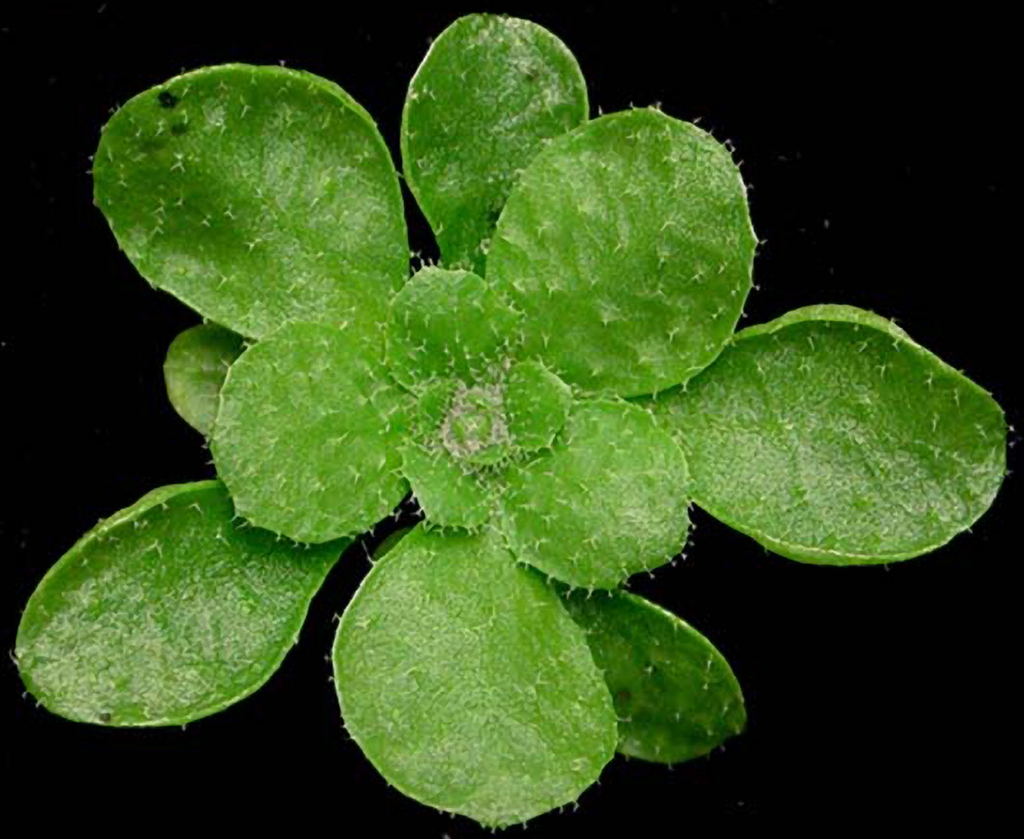DURHAM, N.C. -- When we talk about the microbiome, most of us think of the trillions of microorganisms that live in our bodies, supporting everything from digestion to mental health.
But plants have a world of microbes living on and inside them too. And evidence is beginning to emerge that these hidden residents play a key role in promoting plant health, in part by helping their immune system identify which bacteria to attack and which ones to tolerate.
In a new study, researchers find that disruptions to the community of microbes that live inside the leaves of a spindly plant called Arabidopsis can compromise a plant's ability to tell harmless invaders from harmful ones -- effectively turning the plant's defensive arsenal against itself.
The findings could eventually lead to new ways to help safeguard our food supply, said Sheng Yang He, professor of biology at Duke University and senior author of the study.
Indeed, the Food and Agriculture Organization of the United Nations estimates that crop pathogens cost the global economy some $220 billion each year.
The research was published on Sept. 6 in the journal Nature Plants.

In the study, He and colleagues, including lead author Yu Ti Cheng, a postdoctoral researcher in the He lab, were looking for genes involved in keeping the plant microbiome in balance when they noticed something odd.
They found that plants with a mutation in a gene called TIP1 had an excess of otherwise harmless bacteria inside their leaves. But these plants also had other perplexing symptoms, Cheng said.
For one, they were small and stunted compared with their wild counterparts. And they had dead patches on their leaves that normally occur when plants are fighting infection, even though no "bad" bacteria were present.
Cheng recognized these symptoms as signs of an errant immune system, when a plant's defenses kick into gear even thoughthere's no real threat and attack healthy tissues instead of protecting them.
Plants carrying the tip1 mutation had multiple defense genes turned up in their cells even though they weren't under attack, the researchers found -- a sign that their immune system is in overdrive.
"The plants still have the ability to defend themselves," Cheng said. They've just lost the ability to distinguish between microbial friends and foes, she added.
When this process goes wrong, previously "good" bacteria can cause the immune system to overreact in a way that is counterproductive.
"The host mistakes itself as the enemy," Cheng said.
At first the researchers weren't sure what was causing the plants' immune systems to malfunction. But they wondered if the out-of-balance leaf microbiome was part of the answer.
To test the idea, they grew Arabidopsis seedlings with and without microorganisms, using a germ-free growth system He's lab developed.
Sure enough, when tip1 mutant plants were grown to be devoid of microorganisms, their mysterious autoimmune issues nearly vanished.
"That was our eureka moment," the researchers said.
The health problems that arise when the body's microbiome is out of balance are well-studied in humans. For example, changes in the community of microbes in our intestines have been linked to autoimmune disorders such as Crohn's disease, type 1 diabetes and multiple sclerosis.
But the new findings, together with two previous studies from the He lab published in 2020 and 2023, represent the first time a link between unbalanced microbiomes and autoimmunity has been shown in plants, Cheng said.
The molecular mechanism behind the link remains unclear. The TIP1 gene encodes an enzyme called S-acyltransferase, whose genetic code has remained largely unchanged as new species have branched off from old ones in the tree of life -- which means it may play a role in keeping microbiomes in balance for other species as well.
As a next step, the researchers are trying to identify the molecule or substance that the S-acyltransferase enzyme binds to and how it functions.
The details could ultimately pave the way to prebiotics that support or reset the microbiome to "help plants maintain a better balance" and reduce losses in food crops caused by pathogens or spoilage, Cheng said.
"The more knowledge we have, the more tools we can use," she said.
This work was supported by the Natural Sciences and Engineering Research Council of Canada, the Howard Hughes Medical Institute, and the U.S. National Institutes of Health (1R01AI155441).
CITATION: "Roles of Microbiota in Autoimmunity in Arabidopsis Leaves," Yu Ti Cheng, Caitlin A. Thireault, Li Zhang, Bradley C. Paasch, Reza Sohrabi and Sheng Yang He. Nature Plants, Sept. 6, 2024. DOI: 10.1038/s41477-024-01779-9.






